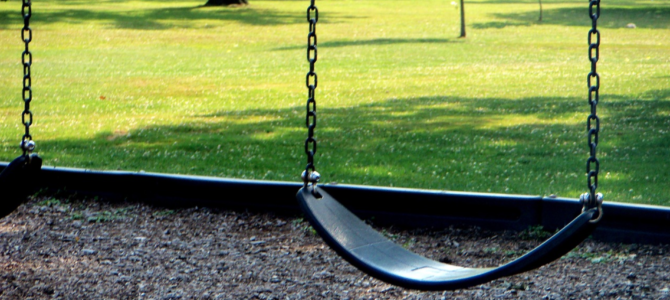
Colorado father Matt Mooney was arrested in front of his wife and 6-year-old daughter Sunday after a police officer told him his family’s game of softball violated social distancing rules. They were playing in a green space adjacent to a park, where a sign was posted indicating their activity was perfectly legitimate.
But compliance with the Brighton social distancing rules wasn’t going to deter police officers from ruining people’s day. They ordered everyone else on the premises to leave and arrested Mooney in an open space of “thirty or forty acres,” according to a third party who recorded the incident.
Families venturing outside on beautiful days are trying to make the most of their time in lockdown, but it seems some state and local government officials would rather they be on house arrest. Govs. Phil Murphy, Bill Lee, and Jay Inslee doubtless would have approved of the Brighton officers’ intentions, because they’ve already closed all state parks and forests in New Jersey, Tennessee, and Washington, respectively.
Childless adult introverts might manage park closures fairly well, but millions of children are stuck in apartments and don’t have the luxury of a backyard. What happened to “get out and play an hour a day”? Do healthy children suddenly no longer need exercise because COVID-19 is a threat to their grandparents?
Parents living with their kids 24/7 need a little space too — more than a thin wall or the width of their living room. If they must endure social isolation, they need fresh air and the opportunity to be active with their kids now more than ever. Plodding sidewalks and hurrying through grocery store aisles (if you’re lucky) is not enough.
If governments can pull off enforcing these draconian social distancing rules, they can find a way to allow limited access to parks, whether on a first-come, first-served basis or by putting city zones on a rotating park-use schedule. Coping with lockdowns becomes even more difficult when it becomes obvious that authorities are tightening their repressive grip based on scant evidence, especially when it comes to outdoor activities.
Preliminary research indicates that plastic playground equipment can harbor the virus for days. Since young children tend to ignore basic hygiene, it makes sense to put the playground off limits along with any other high-touch equipment. But that doesn’t mean the rest of the park should be wrapped in caution tape.
According to experts — and common sense — being outside is a better guard against COVID-19 than being stuck inside with a potentially sick family member. Better airflow means those tiny droplets from sneezes and coughs aren’t hanging in the air as long. Albert Ko, a Yale epidemiologist, assured NPR’s readers that if you’re “hiking or biking or running” and you stick to the six-feet rule, he would “consider that a healthy, safe practice.”
While many news reports have emphasized that droplets carrying viruses can travel more than six meters before settling, simply breathing carries them less than 1 meter, according to a 2007 study. Moreover, experts told the New York Times that “the level of virus in both [large droplets and aerosols] is low, so simply jogging or walking by an infected person does not put people at risk.”
If families aren’t near anyone outside their household, their outdoor recreation isn’t just reasonable, but proactively healthy. Especially as the Northwest, where I live, emerges from its dark and gloomy months, it is crucial that residents get outside. They need to soak up the sunshine to ward off seasonal affective disorder and replenish vitamin D, a deficiency of which can increase susceptibility to infection.
We’re not supposed to make sweeping policy changes in the absence of concrete, peer-reviewed studies — or that’s what the medical experts told us until a week ago when the U.S. Food and Drug Administration finally approved life-saving prescription drugs to treat the Wuhan coronavirus. Yet when it comes to bringing misery and suffering to hundreds of millions of people, there is ostensibly no limiting principle to which the authorities will adhere.
It’s better to be on the safe side, our leaders claim, but their rash decisions stoke resentment and distrust while making these lockdowns intolerable. Closing parks and forests against evidence that they are safe makes people doubt that the other costly lockdown measures, such as shuttering businesses for months, are based on evidence instead of fear and politics.
We were misled on mask-wearing — what else? Distrust breeds disobedience and unrest. Authorities need to conform their policies to the evidence and explain their arguments to preserve trust and compliance. Like the Colorado father, we haven’t done anything wrong. We don’t deserve to be on house arrest.









